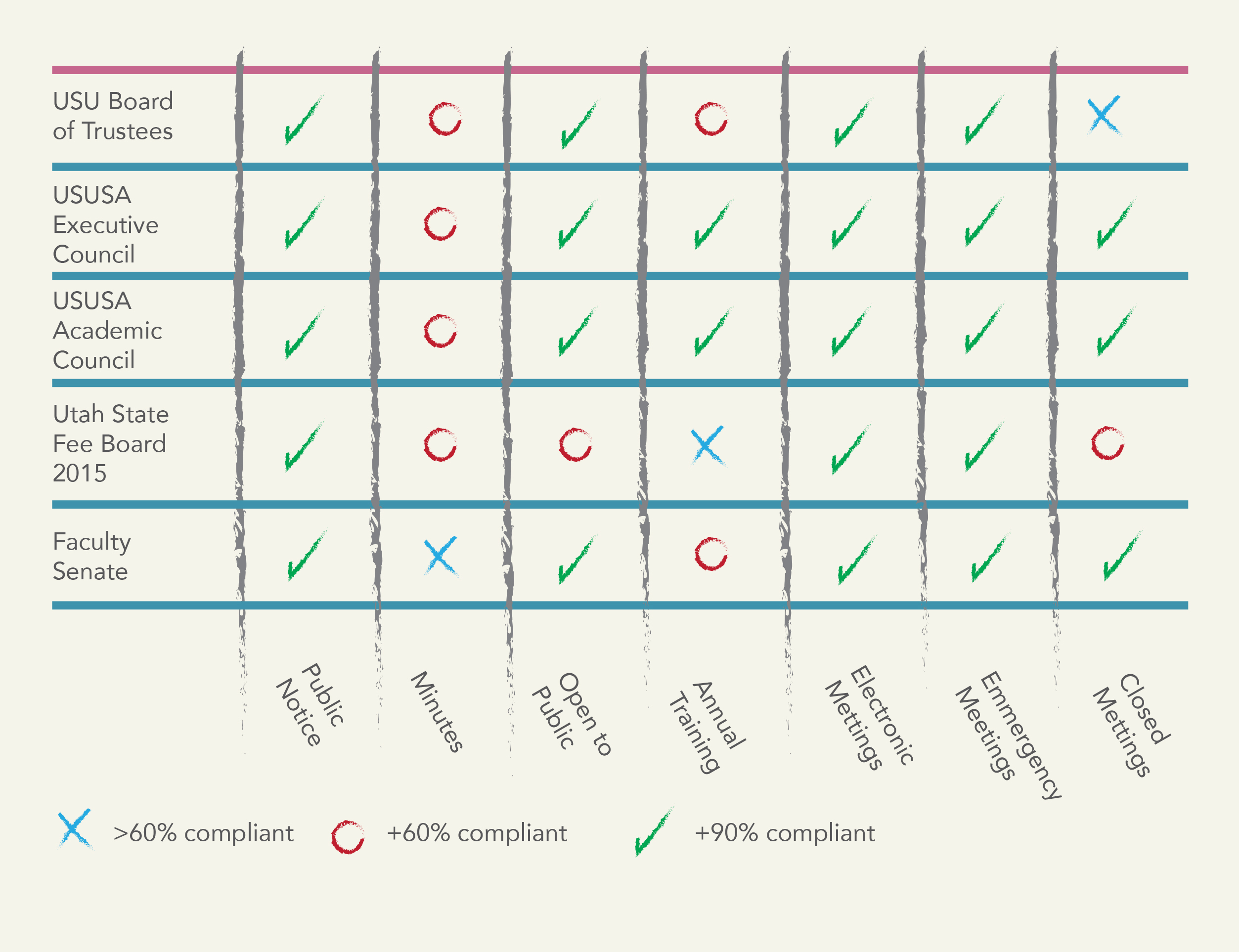Most on-campus bodies don’t comply with open meeting law
In order to be transparent, many on-campus groups are required to comply with the Open and Public Meetings Act, a Utah law that consists of seven key provisions. Five of these groups affect the majority of campus — students and faculty.
While these bodies are required to receive annual training on the act in order to ensure compliance, none of the groups are completely compliant with the provisions.
Utah State University Student Association president Trevor Sean Olsen said the group is exploring changes to make USUSA more transparent. The USUSA administrative assistant, Brenton Hull, began posting meeting agendas in his office window a few weeks ago. They are also looking into creating a permanent home for the agendas in front of the office windows — which would include protectors — for the executive council and academic senate.
Last year, USUSA officers held several executive sessions, or meetings that were closed to the public.
“We didn’t see a need for that,” Olsen said. “I think to be as transparent as we should be, it should all be vetted in front of the public.”
The USUSA Executive Council hasn’t held any closed meetings this year, and Olsen doesn’t foresee a need for any in the future. USUSA vice president Thomas Buttars, who chairs the academic senate and Utah State Fee Board, agreed he doesn’t see a need for closed meetings. If it was needed, however, Buttars said the body would comply with the Open and Public Meetings Act.
“Closed meetings get too iffy,” he said. “I don’t think there’s anything too sensitive that we couldn’t open it to the public.”
Hull takes minutes for the academic senate and executive council, and so the procedures for both are generally the same.
Minutes for the fee board, which are taken by a staff member in the student involvement office, have to be word-for-word, Buttars said. In the past, media members have been told not to come to fee board meetings, but no reason was given. Last year — after some pushback, he said — media members were allowed in the meetings for the first time in decades.
“There was some anxiety about whether having media in the room would stop people from being as vocal about opinions and fear of getting portrayed a certain way,” Buttars said. “But from what I heard, it had no impact on the flow of the meeting.”
While USUSA officers — who sit on the fee board — are trained on the Open and Public Meetings Act, the seven students-at-large were not trained last year. Students-at-large are appointed to the fee board by student body officers.
“We found out later that we weren’t compliant. We wanted, obviously, to comply with state law, so we changed some things,” said Matt Ditto, last year’s executive vice president and fee board chair. “In the beginning I think it was just a lack of education.”
Buttars said he plans on getting this year’s students-at-large the training they need.
USUSA officers receive training on the act after elections and before inauguration. Members of public bodies are required to be trained on the act annually. That includes faculty senators, USUSA officers, fee board members and trustees. Of the trustees, however, only newly appointed Board of Trustees members receive that training — trustees’ terms last four years, with half of their terms expiring in odd-numbered years.
In order to be compliant with the minutes provision of the act, minutes must be available to the public prior to approval as “unapproved minutes.” Of the five on-campus bodies examined for compliance, only the USUSA Executive Council and Academic Senate fulfill this requirement. The group is looking to record their meetings and post those recordings, but does not currently meet that requirement.
— brennakelly818@gmail.com
Twitter: @bckelly8


Check your spelling. Whoops! :/